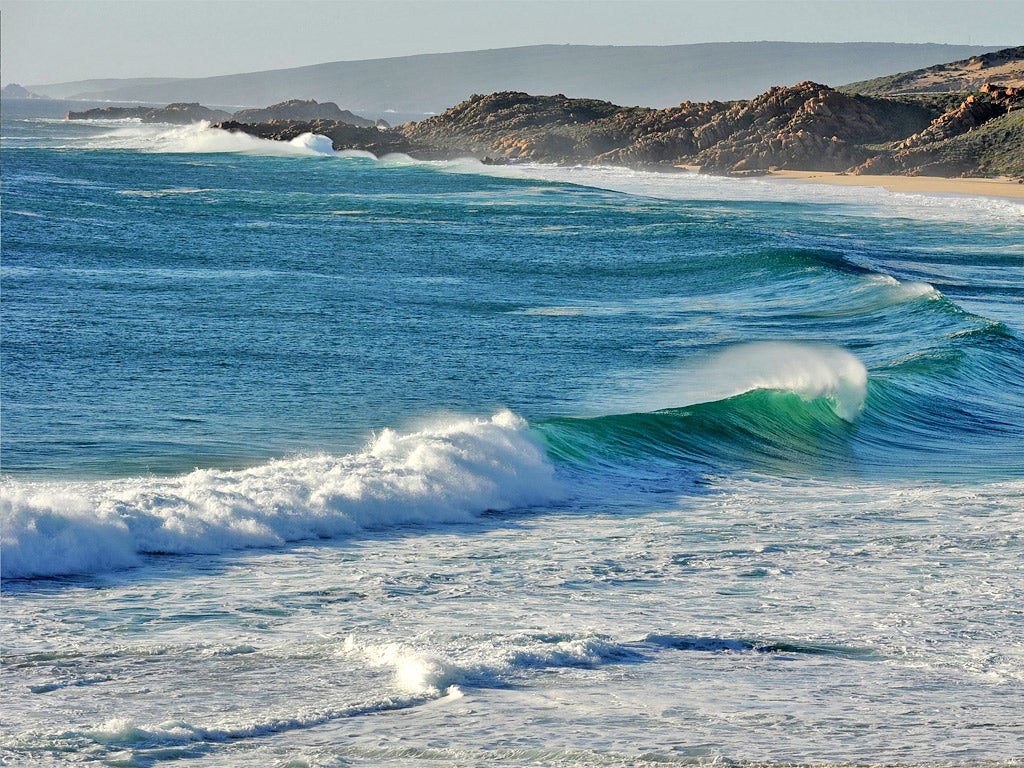Seas score a meagre six out of 10 in new marine health index
Scientists have developed a system for assessing the well-being of oceans and coastal waters around us

Your support helps us to tell the story
From reproductive rights to climate change to Big Tech, The Independent is on the ground when the story is developing. Whether it's investigating the financials of Elon Musk's pro-Trump PAC or producing our latest documentary, 'The A Word', which shines a light on the American women fighting for reproductive rights, we know how important it is to parse out the facts from the messaging.
At such a critical moment in US history, we need reporters on the ground. Your donation allows us to keep sending journalists to speak to both sides of the story.
The Independent is trusted by Americans across the entire political spectrum. And unlike many other quality news outlets, we choose not to lock Americans out of our reporting and analysis with paywalls. We believe quality journalism should be available to everyone, paid for by those who can afford it.
Your support makes all the difference.Marine scientists have for the first time worked out a systematic way of scoring the health of the world's oceans, in an attempt to assess how well they are coping with the pressures of overfishing, pollution and anything else that affects the well-being of the sea.
Click HERE to view graphic
The overall global score for the Earth's coastal seas is 60 points out of a possible maximum of 100, showing there is still plenty of "room for improvement", they concluded.
Some areas with the lowest scores, such as the coastal waters off the troubled West African state of Sierra Leone, which scored 36, failed in almost every one of the 10 measures the scientists used to assess the health of the sea.
They also found that the coastal waters off some developed countries with a high population density, such as Germany, fair almost as well as areas that are almost entirely devoid of human influences, such as the tiny uninhabited Jarvis Island in the middle of the Pacific Ocean.
Developed countries tended to score higher than developing nations because they usually have a good system of marine protection, such as vessels to stop illegal fishing.
Jarvis Island, a protected territory of the United States, benefits from the marine protection of the US Fish and Wildlife Service, for instance, whereas other remote areas suffer from a lack of coastal protection, which lowered their health index scores significantly.
The survey, carried out by 30 scientists and published in the journal Nature, found that only 5 per cent of countries scored higher than 70, whereas a third scored lower than 50. Britain scored 61, which was lower than America's 63 and Germany's 73.
Dr Ben Halpern, a marine scientist at the US National Centre for Ecological Analysis and Synthesis in Santa Barbara, California, said that the ocean health index was a way of systematically assessing how well a coastal sea is doing so it can be monitored long term to see whether the region is getting worse or better over time.
"What the index does it help us separate our gut feelings about good and bad from the measurement of what's happening," Dr Halpern said. "It provides a tool that puts meat on the metaphor of ocean health, which is bandied about all over the place but without anything to use to actually measure it."
The scientists assessed each coastal region on the basis of 10 separate measures of ocean health and sustainability, such as water quality and biodiversity, but also on the sustainability and productivity of local maritime industries, such as fishing and tourism.
Dr Halpern said the analysis of ocean health deliberately set out to include the need for humans to use the oceans for food, leisure or livelihood, rather than merely assessing a coast on the basis of how isolated it was from human interference.
"Several years ago, I led a project that mapped the cumulative impact of human activities on the world's ocean, which was essentially an ocean 'pristine-ness' index. That was, and is, a useful perspective to have, but it's not enough," he said.
"We tend to forget that people are part of all ecosystems, from the most remote deserts to the depths of the ocean. The ocean health index is unique because it embraces people as part of the ocean ecosystem."
Join our commenting forum
Join thought-provoking conversations, follow other Independent readers and see their replies
Comments